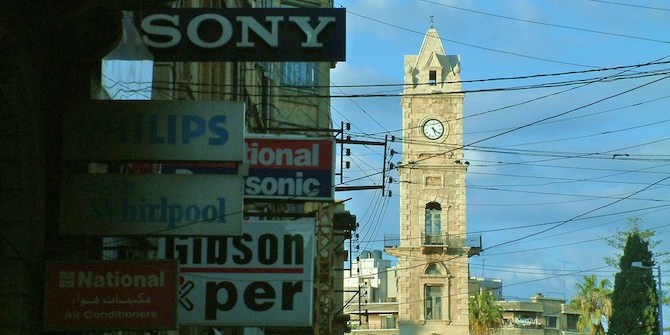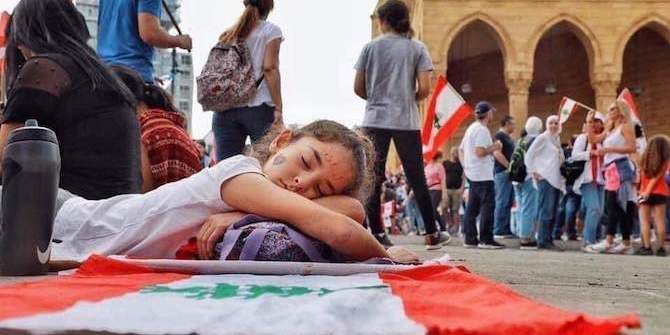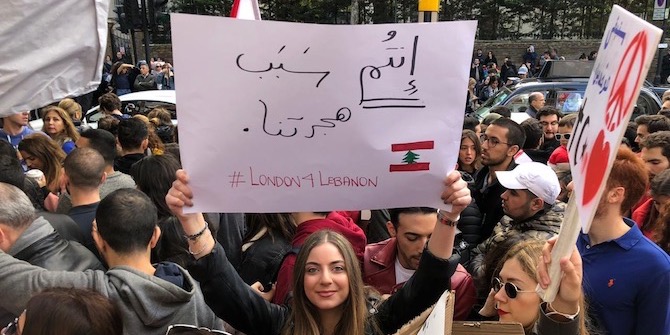by Jasmin Lilian Diab

According to UNHCR’s latest estimates, Lebanon currently hosts 1.5 million Syrian refugees, over 200,000 Palestinian refugees, and close to 16,000 refugees of Ethiopian, Iraqi, Sudanese and other origins. The Syrian civil war, now in its tenth year, has imposed both economic and social constraints on Lebanon. The country has additionally been faced with an escalating political, economic and financial crisis since late 2019. This has been aggravated by a rapid spread of the COVID-19 pandemic and, on 4 August 2020, the explosion at the Beirut port. The protracted nature of the refugee situation within this context has led to a rapid and widespread rise in extreme poverty among these populations. An estimated 88 percent of Syrian refugees in Lebanon live below the extreme poverty line. As UNHCR suspended its registration of Syrian refugees in 2015 at the request of the Lebanese government, the number of registered Syrian refugees decreased to 879,529 by the end of 2020.
Now living through another protracted conflict in their lifetime, Palestinian refugees from Syria are among those particularly affected by the Syrian conflict. More than 120,000 Palestinian refugees from Syria have fled the Syrian territory, 29,145 of which have reportedly fled to Lebanon, as of 2018. Now forcibly displaced twice, Palestinian refugees from Syria are significantly more vulnerable and heavily reliant on the assistance of the United Nations body they are protected by in Lebanon – the United Nations Relief and Works Agency for Palestinian Refugees in the Near East (UNRWA). Palestinian refugees from Syria in Lebanon’s refugee camps survive dire living conditions every day, and their very particular case (at the intersection of two international protracted conflicts) is often not given any special attention by the international community. According to UNRWA, 87 percent of Palestinian refugees from Syria in Lebanon currently live under the poverty line, with the majority of their households also living through food insecurity. Palestinians from Syria are additionally not allowed to work in Lebanon, and just 6 percent of them (aged between 15 and 18 years old) are in school. According to Lebanese law, Palestinians must renew an expensive visa every three months to be eligible for any services throughout the country. As the international attention given little-to-no attention to this vulnerable sub-population while it works on the Palestinian and Syrian refugee populations in general, UNRWA in Lebanon continues to struggle to meet the basic needs of a newly present vulnerable group in the country, and has been under-funded.
At the early stages of the global COVID-19 pandemic, Lebanon imposed various confinement measures that initially proved to be successful in preventing the spread of the virus. Nonetheless, as of the Beirut port explosion of 4 August 2020 the number of COVID-19 cases in Lebanon has been drastically and steadily increasing as a result, exerting additional strains on the country’s already complex and inadequate health system. The country’s deep economic crisis has further led to a rapid deterioration of the socio-economic situation of both Lebanese citizens and the refugee populations in the country. With an ongoing multi-layered and intersectional crisis throughout the country, UN bodies have split their mandates to meet the needs of the country’s most vulnerable group. Subsequently, UNHCR and UNRWA have adopted a responsibility-sharing model tailored to the Lebanese context during COVID-19 and beyond.
UNHCR and UNRWA’s Responsibility-Sharing Model: Syrian Refugees vs. Palestinian Refugees from Syria
Since 2018, UNHCR has provided monthly cash assistance of USD 175/month to almost 33,000 Syrian households. In Lebanon, refugees access health services through hospitals, primary health care centres, and mobile health services. With Lebanon’s national health system on the brink of collapse and the country’s hospitals at full capacity, UNHCR continues to work closely with the Ministry of Public Health, to increase hospitals’ capacity in order to ensure that all COVID-19 patients can receive treatment regardless of nationality or standing in the country. Since the beginning of the COVID-19 outbreak, UNHCR has provided support to hospitals, and covered 800 additional beds and 100 additional ICU beds, including ventilators, advanced equipment, and medications in order to serve some of the country’s most vulnerable – predominantly the Syrian refugee population.
And while the Syrian conflict has displaced tens of thousands of Palestinian refugees from Syria, the ‘blind spot’ in which they reside at the intersection of the UNHCR and UNRWA mandates remains a significant challenge that UNRWA has struggled to address single-handedly. In 2019, UNRWA required USD 277 million for its humanitarian response to assist Palestinian refugees from Syria who fled to Lebanon and Jordan. Close to USD 46 million of the overall required amount aims to provide continued emergency support to Palestinian refugees from Syria in Lebanon alone. As Palestinian refugees (and Palestinian refugees from Syria) in Lebanon continue to live across twelve overcrowded camps across the country, UNRWA has repeatedly voiced its concerns about the dire situation in the last year of acute financial crisis and pandemic for these refugees. Palestinian refugees in Lebanon receive health, education and social services from UNRWA – the most vulnerable of which (Palestinian refugees from Syria), receive financial assistance to purchase food and basic needs. Palestinian refugees continue to face systemic restrictions that limited employability, property ownership and movement.
The Responsibility-Sharing Model Fails to Address an Important Overlap
Contemporary issues faced by Palestinian refugees from Syria in Lebanon unfortunately cannot be isolated from the political history of the Lebanese-Palestinian and Lebanese-Syrian relationships. This is a matter international organisations, UN agencies and stakeholders continue to struggle with as sentiments among vulnerable groups in the country often hinder humanitarian efforts. For Palestinian refugees from Syria, Lebanon appeared as the easiest destination from Damascus the moment Yarmouk, the largest refugee camp in Syria, was bombed in December 2012. For many of these refugees, crossing into Lebanon meant doing so irregularly either because they were unable to pay legal fees or for fear of involuntary enrolment in the Syrian military. While UNRWA has relieved their living conditions in Lebanon largely, it is still unable to provide adequate shelter for these families, and is additionally strained during the COVID-19 pandemic. One of the major issues remains the absence of any form of security coordination in camps across the country (and between UN agencies) to address what could be a critical challenge in this Palestinian and Syrian refugees’ environment as they compete for access to services amid a pandemic and economic crisis in Lebanon: tensions between Palestinians from Syria, Palestinians in Lebanon and the Syrian refugee community in the country.







I’m very happy happy full to see this post . Thanks UN for everything to refugees